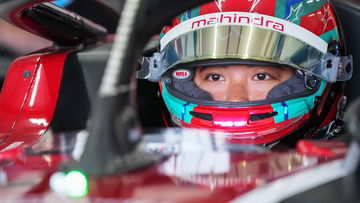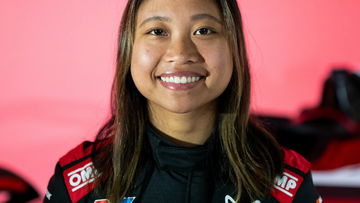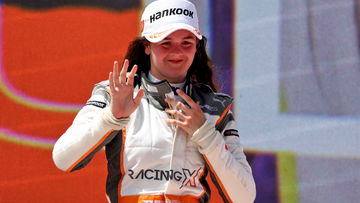F1 Academy
In 2023, Formula 1 launched the F1 Academy, a new project to support female drivers in their development and preparation for higher levels of competition.
The category is designed to provide drivers with more track time, racing and testing opportunities, as well as support in technical, physical, and mental preparation. It offers young talent in junior categories the experience needed to progress to Formula 3 and prepare for the path to Formula 1.
For the inaugural season, a total of sixteen drivers from five teams are participating. The participating teams are established names from Formula 3 and Formula 2, namely:
These teams are known for their experience and expertise in nurturing young talent and helping drivers take the next step in their journey in competitive motorsport.
There are 7 rounds on the calendar with 14 races in total. Besides, the F1 Academy will compete as a support class alongside Formula One. Marta Garcia won the inaugural F1 Academy season in 2023. For the 2024 season, Mercedes junior Doriane Pin is the big favorite to become champion, known for her exceptional performance in various motorsport classes, especially in LMP2.
The car used in the F1 Academy is the Tatuus F4-T421, also utilized in Formula 4 championships.
Jessica Hawkins Aston Martin F1
In September 2023, Jessica Hawkins stepped into a Formula 1 car; the Aston Martin AMR21. This makes the Aston Martin ambassador the latest woman to step into a modern F1 car. Read more about Hawkins' test at the Hungaroring here.
Susie Wolff onboard Germany 2014
In 2014, Susie Wolff drove the Williams F1 car in Germany during practice. She was the first female F1 driver since 1992. Giovanna Amati was the first female F1 driver ever. Below, you can view a lap of Susie Wolff in the Williams F1 car in Germany.
Difference in funding
The F1 Academy is funded by the FIA, while the W Series is funded by various sponsors such as PUMA, Heineken, and Hankook. PUMA and Hankook provide the race clothing and tyres needed for the championship. Drivers in the F1 Academy will have a budget cap of €150,000, to which the F1 contributes €2.2 million during the season. Unfortunately, the W Series of 2022 could not be completed due to a lack of funding. With the FIA overseeing the funding of the F1 Academy, it is unlikely that they will encounter the same problems as the W Series.
Notable female drivers
Women participate in racing classes all over the world. Examples of female drivers include Sabine Schmitz (WTCC, 24 Hours of Nürburgring), Sophia Flörsch (F3, DTM, and LMP2 driver), Susie Wolff (F3, DTM, and test and reserve driver at Williams), and Tatiana Calderon (IndyCar, F2, and Le Mans driver). One of the most well-known and successful female drivers is Danica Patrick. The American driver competed in over a hundred IndyCar races, finishing on the podium seven times and winning one race. In 2009, she finished third in the Indianapolis 500.
French driver Lilou Wadoux made history in 2023 by becoming the first female driver to win a class in the FIA WEC.
Female key figures: from team bosses to strategists
Not only on the track, but also in other areas related to motorsports, women are putting themselves in the spotlight. For example, Hannah Schmitz is the head strategist for Max Verstappen and Sergio Pérez, and Angela Cullen has been the long-time physiotherapist for Lewis Hamilton. Claire Williams was the team principal of the Williams Formula 1 team for several seasons, and Monisha Kaltenborn held the same position at Sauber (Alfa Romeo).
Have there been female F1 drivers?
Yes, in the past, there have been multiple female F1 drivers. Besides, there were multiple female drivers who drove on a test/development day for a Formula One team as well.
Who was the first woman in F1?
Maria Teresa de Filippis was the first woman in F1. She drove in the 1958 and 1959 seasons and started three times in F1, with 10th as the best result during the 1958 Belgian Grand Prix.
Is there a female F2 driver?
Only one female driver has ever raced in F2, namely Tatiana Calderon. This was in 2016 and 2017 when Formula 2 was called GP2. Her best finish of a race was 18th place.
Are women allowed to compete in F1?
Yes, women are allowed to compete in Formula 1. There is no gender-based restriction on participation in the sport. However, historically, there have been very few female drivers in Formula 1, and none have competed in recent years.
Don't miss out on any of the Formula 1 action thanks to this handy 2026 F1 calendar that can be easily loaded into your smartphone or PC.
Download the calender




